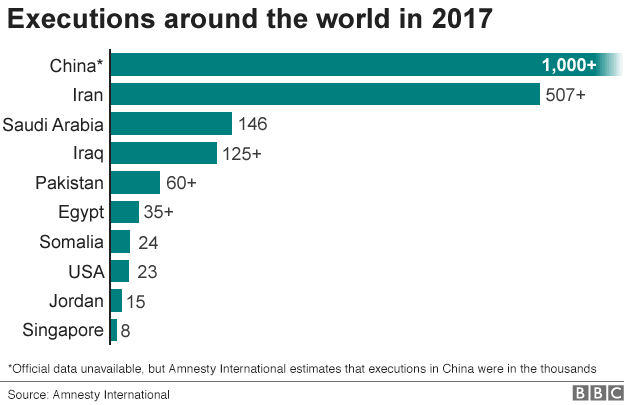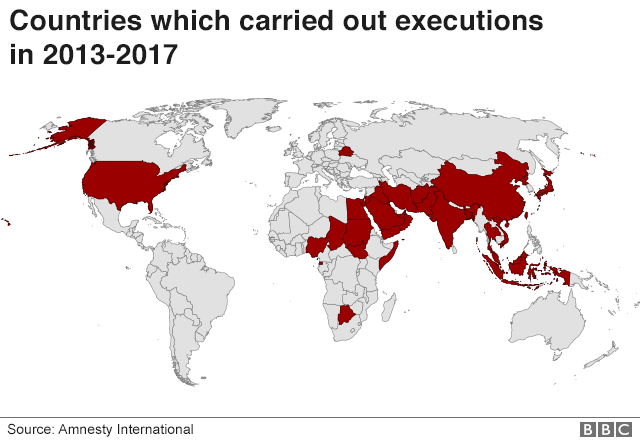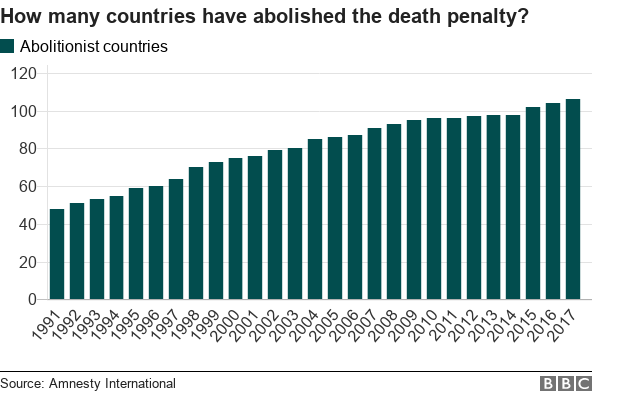The Philippines has a long history with capital punishment, but it was most recently suspended in the year 2006 and replaced with the life imprisonment and reclusion perpetua.
In 1946, murder, rape, and treason were grounds for the death penalty. Until 1961, 51 were sentenced to death by the law. This number soared high under the leadership of strongman Ferdinand Marcos.
Under the Marcos regime, drug trafficking was added to the list of crimes punishable by death. Electric chairs were the primary instrument for execution during Marcos’ time, which were replaced by firing squads in 1976. When Marcos was overthrown during the 1986 People Power Revolution, the Philippines became the first country in Asia to abolish death penalty by virtue of the 1987 Constitution.
Death penalty was reinstated under the rule of then-President Fidel Ramos, which used gas chambers and electric chairs to dispense judgment. Executions continued until the second suspension of the death penalty under President Gloria Macapagal-Arroyo, who suspended it under Republic Act No. 9346 in 2006.
The Philippines abolished capital punishment in June 2006 when then President Gloria Macapagal-Arroyo signed Republic Act No. 9346, also known as An Act Prohibiting the Imposition of the Death Penalty in the Philippines.
Arroyo said the death penalty should be abolished because it had not proven to be a deterrent to crime and had become a dead-letter law. RA 9346 downgraded the death penalty to life imprisonment.
The Philippines has had a history of invoking and scrapping capital punishment since the end of World War II.
Between 1946 and 1965—the year Ferdinand Marcos became the President—35 people were executed, mainly convicted of particularly savage crimes marked by “senseless depravity” or “extreme criminal perversity.”
Following the Edsa People Power Revolution that toppled Marcos from power, then President Corazon Aquino promulgated the 1987 Constitution, which abolished the death penalty “unless for compelling reasons involving heinous crimes, Congress hereafter provides for it.”
In 1993, Congress passed RA 7659, or the Death Penalty Law, which reimposed capital punishment.
Under RA 7659, crimes punishable by death included murder, rape, big-time drug trafficking, kidnapping for ransom, treason, piracy, qualified bribery, parricide, infanticide, plunder, kidnapping and serious illegal detention, robbery with violence or intimidation, qualified vehicle theft and arson.
In March 1996, through RA 8177, the law was amended prescribing death by lethal injection for offenders convicted of heinous crimes.
But opposition from human rights groups held up executions until 1999.
Between 1999 and 2000, during the term of deposed President Joseph Estrada, seven inmates were put to death.
The first to be executed was Leo Echegaray, on Feb. 9, 1999, and the last was Alex Bartolome, on Jan. 4, 2000. Echegaray was convicted of raping his stepdaughter. Bartolome was convicted also of raping his daughter more than 100 times over two years, starting when she was 16.
Source:INQUIRER.NET








